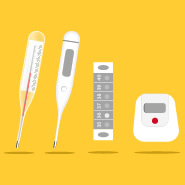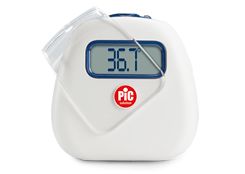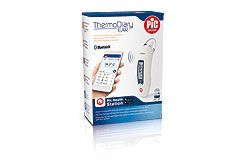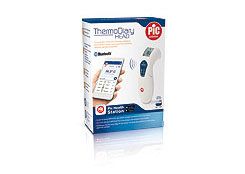
Thermometers: comparing their accuracy
Buying a thermometer? Then you'll need to know which ones are the most accurate and reliable. This varies depending on the model and the technology it uses, so let's look at the ones you can rely on.
Digital thermometers: guaranteed precision
A digital thermometer has a sensor that transmits temperature changes to a microcircuit which records them and shows them on a liquid crystal display. If you're looking for the most precise thermometer, a digital model is the right choice for you. Major errors are almost nonexistent, provided the thermometer is correctly positioned.
Reactive strip thermometers: not very precise
Reactive strip thermometers are like bandanas of coloured liquid crystals placed on the forehead. These take about 3 seconds to change colour depending on the temperature. They are easy to use, but less accurate than digital thermometers.
Infrared thermometers: reliable if correctly used
An infrared thermometer uses a sensor to collect electromagnetic radiation from the tissues, and a microprocessor to convert this into a temperature. It is precise, but only if you use it properly. In some cases, for example, earwax can alter the temperature measurement from an infrared auricular thermometer by up to 0.6° C (33° F).
Galinstan thermometers: maximum precision, but slightiy slower
Broadly similar to mercury thermometers, which are now banned in many countries, these contain a less toxic alloy of metals - gallium, indium and tin named Galinstan. They are very precise, but must be left in position for at least 5 minutes.









